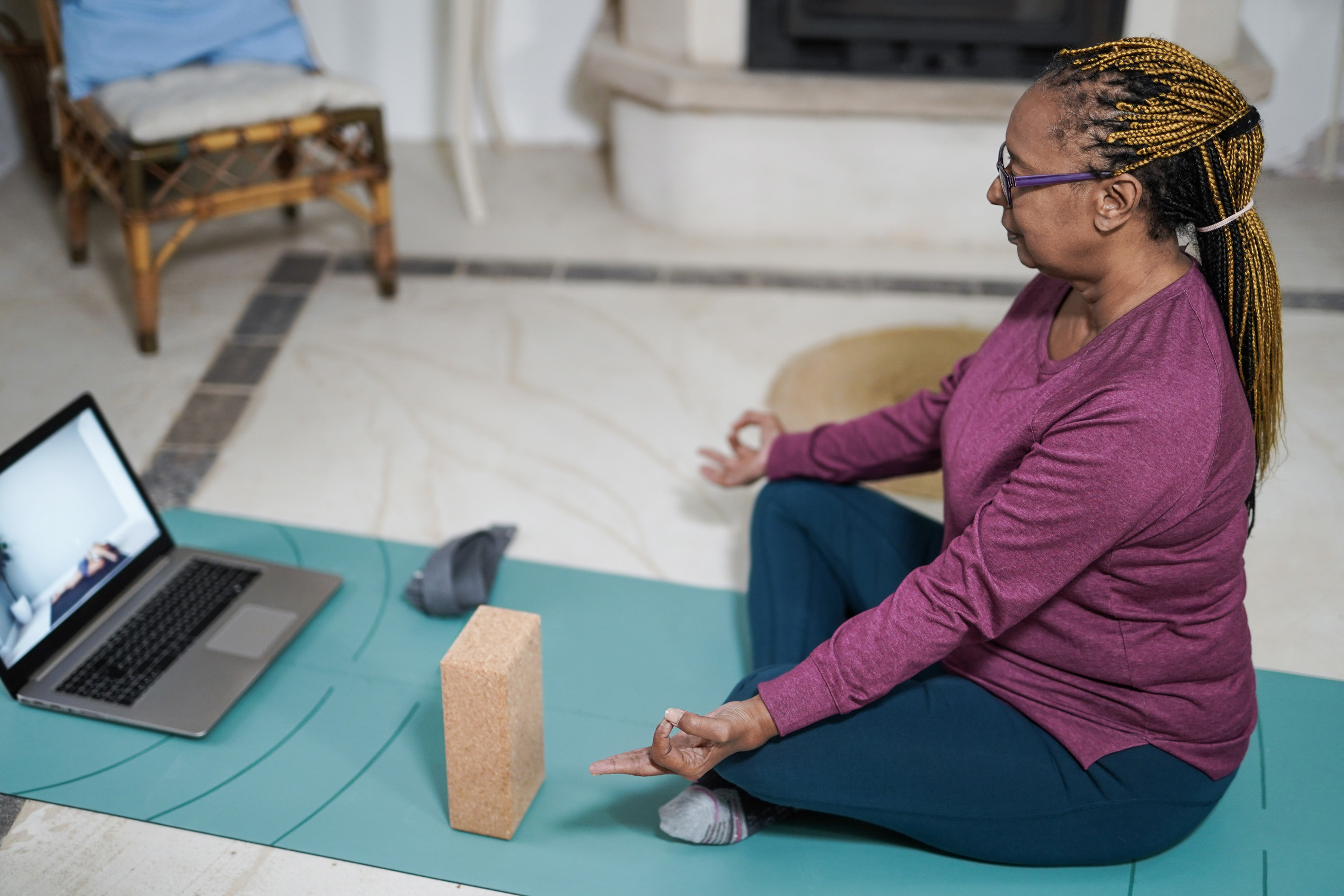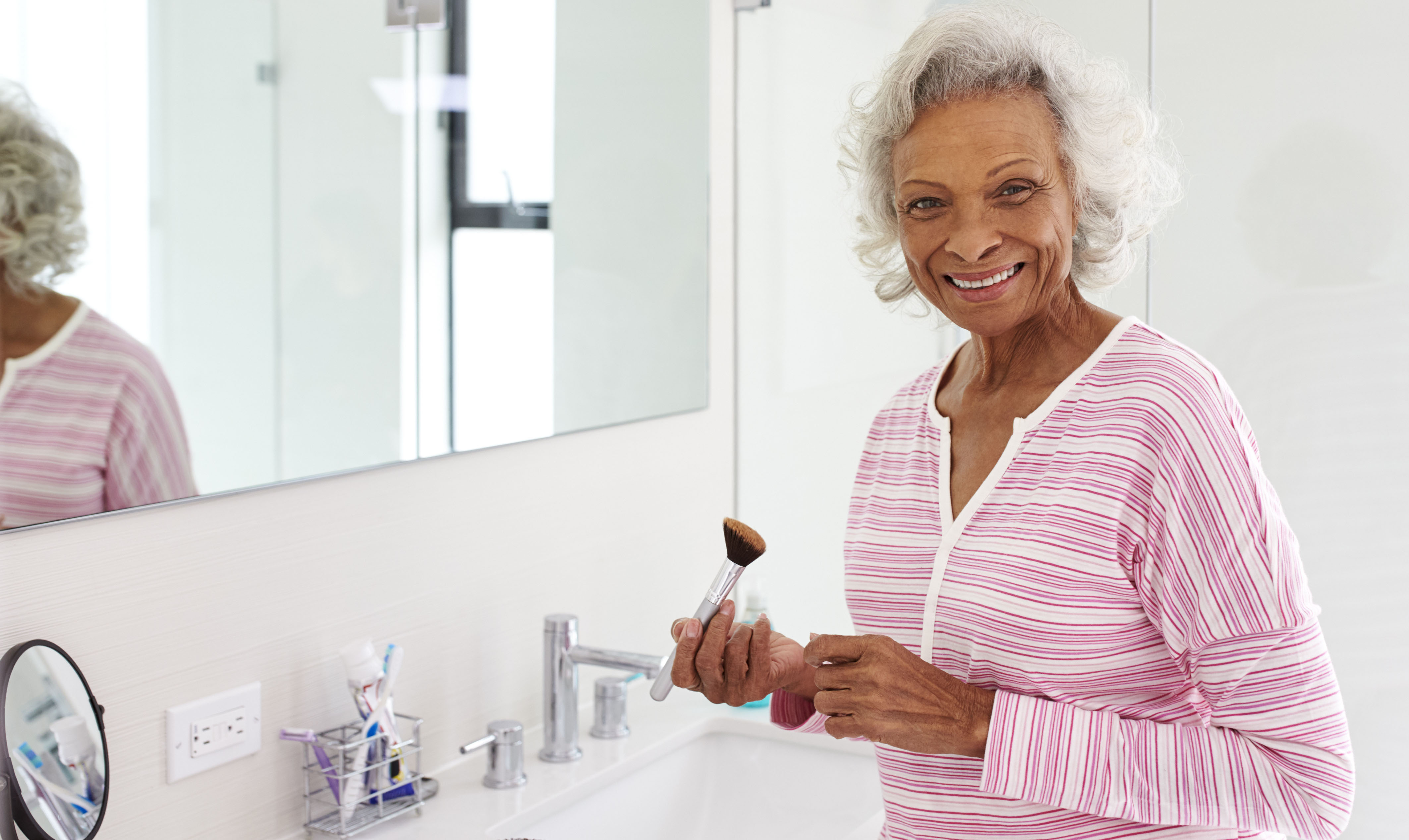
A Guide for Preserving Independence
With Senior Moments, Mild Cognitive Impairment and Alzheimer’s Disease.
By Jonathan L. Liss, M.D., D.ABPN, D.ABSM
Copywrite 2015-2021, All rights reserved
Section III : For the Caregiver / Care Partner
Learning How to be an Excellent Care Partner
Introduction
This section of the booklet is designed to help care partners maximize their ability to assist loved ones who suffer from Mild Cognitive Impairment or Alzheimer’s disease. By understanding the nature of these diseases and anticipating common complications, hardworking care partners will get the most out of the energy they expend. To help make a hardworking care partner into a smart and efficient hardworking care partner, the following issues will be discussed:
- Understanding the differences between moderate and severe Alzheimer’s disease
- The importance of routine
- Daily Planner
- Managing common complications
- Common Safety concerns
- Financial planning

Understanding the Difference Between Moderate and Severe Alzheimer’s Disease

Moderate Alzheimer’s Disease
With moderate disease progression, sufferers are unable to conceal their illness. A formal diagnosis may not have been made, but family and friends typically know that a significant problem exists. Persons with moderate disease typically need help with a variety of daily activities. They may need some assistance with dressing, creating meals, and performing complicated grooming tasks. They usually have handed over bill paying and financial planning to their loved ones. It is common for patients with this degree of dementia to:
- Have confusion about recent conversations
- Argue more often than usual
- Wander
- Hear and see things that are not present
- Have increased irritability, anxiety, and depression
Severe Alzheimer’s Disease
- Recognizing family and friends
- Helping in his/her own care
- Recognizing him/her self in a mirror


Maintaining Routine
Because people with memory loss have more problems with short term memory than with long term memory, routine becomes their “best friend”. Seeing the same furniture arrangement in the house upon awakening is a reminder that this is the same room he or she was in yesterday. Likewise, seeing the same nearby houses and businesses tends to reduce disorientation and confusion. This makes it more likely that anxiety and stress will be kept to a minimum and that the day will progress smoothly. When loving relatives treat the patient to a weekend away, it can be very disorienting and can lead to significant behavioral difficulties. It is, therefore, important to weigh the potential joys of travel against the complications of taking a person with memory loss away from familiar surroundings.
Daily Planner
A daily planner is a checklist of each day’s coming activities. It is a wonderful tool to be used in patients with Mild Cognitive Impairment, as well as mild and moderate Alzheimer’s disease. A full description of the benefits and structure of a daily planner can be found in Section II. Reminding your loved one to repeatedly look at his/her daily planner can be a very important tool in fostering independence.


Managing Common Complications
By definition, a complication is an unwanted intrusion. However, the management of one or more complications should be viewed as a golden opportunity to quickly improve thinking and function. It is the very essence of making lemonade out of lemons. The following issues should be frequently considered and aggressively treated:
- Mood Disorders
- Behavioral Changes
- Sleep Cycle Dysfunction
- Bowel/Bladder Incontinence
- Nutritional Deficits
Mood Disorders
Depression and anxiety are very common when battling illness. Because mood disorders reduce the ability to think clearly, adequate treatment offers an excellent way to improve memory and problem solving. Successful treatment is a wonderful way to recapture a sense of robust health and crisper thinking. That said, today’s population of seniors is of a generation in which a discussion of depression/anxiety is considered a personal weakness and is subsequently taboo. A conversation about this topic must be handled with appropriate delicacy. This common attitude toward the treatment of mood disorders and mental illness is especially sad as there are a large number of medicines, behavioral therapies, and even measured bright light exposure that can offer benefit. As author Norman Cousins noted, a positive outlook is critical to fighting illness.



Behavioral Changes
Aggression and agitated behavior are common complications of Alzheimer’s disease and offer yet another opportunity to improve a loved one’s ability to function. Anyone who has ever been angry knows that thinking is impaired when strong emotions erupt. Therefore, the ability to feel at peace will lead to sharper thinking and improve interpersonal relationships.
Agitated behavior is often a manifestation of the disease itself. However, sometimes there are other causes that need correction. Treatment of behavioral symptoms begins with a thorough medical check-up to assess for correctable causes:
- Mood Disorders—Anxiety, Depression, Manic Depression, etc.
- Physical Discomfort—Urinary tract infection, constipation, joint pain, etc.
- Environmental Factors—Noisy room, unfamiliar surroundings, poor ventilation, hot/cold room, etc.
- Communication Problems—Frustration at not being able to express oneself
- Fatigue—Inadequate rest or sleep
- Medications—Side effects, drug interactions, inappropriate dosage
Managing Behavioral Symptoms
Scheduling
It is common for people with Alzheimer’s disease to get tired in the late afternoon or evening. Therefore, morning and early afternoon undertakings are often easier for everyone involved. Consider the time of day your loved one functions best when making appointments or scheduling activities. If later activities are necessary, try to avoid overexertion earlier in the day.


Arguments
Since no one likes to be wrong, arguments between patients and caregivers are quite common. They are frequently rooted in the patient’s inability to bring together all necessary information to comment accurately and the caregiver’s inability to let things go. Remember, it takes two people to argue. It is counterproductive to argue about things that do not matter. In other words, if the topic of interest does not affect safety or care, it is the caregiver’s responsibility to avoid challenging the patient. Let insults and unimportant misstatements fall off of you the same way that “water falls off of a duck’s back.” Instead of arguing with your loved one, attempt gentle persuasion. Keep it simple by not asking too many questions or making too many statements at one time, and avoid complex commands. Be calm, so that your mood does not worsen the environment.
To Help Reduce Agitation:
- Create a calm, quiet, and comfortable environment.
- Decrease stressors, such as loud televisions, screaming children, and unfamiliar visitors. Monitor room temperature, light level, and glare.
- Eliminate caffeine and alcohol.
- Obtain a hearing and vision check to make certain hearing aid and eyeglass prescriptions are adequate.
- Review medication side effects. Many medications, including those used for allergy and sleep, can be mind-altering.
- Help your loved one engage in activities that are soothing and give him or her pleasure and comfort – like walking a favorite dog, listening to a favorite type of music or watching a favorite sport on television.
- Offer a security object such as a pillow, stuffed animal, or small blanket in association with soothing rituals like gentle touch.
- Monitor personal comfort by checking for: pain, hunger, thirst, constipation, full bladder, fatigue, infections, and skin irritation.
- Be sensitive to fears, misperceived threats and frustration. Simplify tasks and routines.
- Be attentive but avoid overwhelming your loved one with questions and conversation.
- Provide an opportunity for exercise: go for a walk, garden together, or put on music and dance.


Find more suggestions at www.Alz.org.

Violence
Violence is not a frequent part of this disease, but hallucinations and paranoia are common. Because Alzheimer’s disease can affect a person’s judgment and perception, it is wise to keep dangerous instruments, such
as guns and knives, locked away.
Medications for Agitation and Aggression
Medication classes frequently tried include antidepressants, sedative/hypnotics, and antipsychotics. Research trials and FDA
approved medications can be found listed at www.Alz.org.
Sleep Cycle Disruption
It is impossible to think well when tired. For this reason, it is important for Alzheimer’s sufferers to have adequate rest at night.
To help maintain a normal sleep/wake cycle:
- Avoid naps.
- Obtain daily exposure to normal fluctuations of light and darkness
- Getting outside every day.
- Keeping window blinds open during daylight hours.
- Maintaining hobbies.
- Avoiding prolonged periods of sitting.

Once your loved one is allowed to sleep during the day, both of you are likely to be awake at night. This leads to an exhausted caregiver and is a common reason why assisted living arrangements are sought.

Bladder/Bowel Accidents
Good grooming is always a priority. Staying clean and dry are the necessary ingredients for being content and calm. Wetting or soiling oneself is extremely discouraging and can lead to distracted and agitated behavior.
Tips for staying dry include:
- Remind your loved one to visit
- the restroom several times per day.
- Reduce his/her nighttime liquids.
- Take your loved one to the restroom prior to bed.
- Consider using adult undergarments.
- Consider using bladder medications.
Nutritional Deficits
Does an apple a day keep the doctor away? …Probably not. However, good nutrition is important for solid brain function and warding off other illnesses. Because memory is impaired, it is not unusual for patients to forget or skip meals. This is another reason why a daily memory planner is important to utilize.


Safety
Keeping our loved ones safe is of maximum importance. For this reason, the following issues of safety will be discussed:
- Driving Safety
- Home Safety
- Wandering
Driving Safety
When the question of driver safety arises, the first questions that should be considered are:
- “Is everyone comfortable with the patient driving the grandchildren around the city?”
- “Would the care partner be willing to sit in the backseat of the car while the patient drives?”
- “Is the driver maneuvering around the area without getting confused or lost?”

If the answer is “No” to any of these questions, then driving should be restricted until a formal driving test is arranged. In most states this can be done without charge through the Bureau of Motor Vehicles. There are also private companies that can give a formal driving evaluation and make recommendations. The Alzheimer’s Association offers a list of driving assessment centers on their website www.alz.org.

Kitchen Safety
It is very easy to start a kitchen fire by forgetting that a roast was placed in the oven ten hours ago, or that the stove is on with a pan of oil on top. For this reason, it is important to exercise appropriate caution. Some ways this can be achieved is to set a timer every time the stove or oven is engaged. Alternatively, choosing to make dishes that can be prepared in a short enough time that the chef will not be leaving the kitchen makes sense. Some people with memory impairment limit their cooking to the use of the microwave.
Perhaps the most charming and engaging suggestion is team cooking. Since the dawn of time, sharing a meal has been viewed as an act of love and a source of bonding. Imagine how much those bonds will be strengthened by preparing meals together…bon appétit!
Bathroom Safety
It is easy to forget the bath tub water was started with the drain plugged. Setting a timer as a reminder that the water was turned on, can be very helpful. Occasionally, injuries can occur when scalding bath or shower water is started without the proper amount of cold water added. Reducing the thermostat on the water heater to eliminate very hot temperatures can be reassuring.


Wandering
Concerns about wandering out of the house are a significant source of anxiety for caregivers and sometimes for patients as well. This is more likely to occur as the illness progresses. Warning Signs for wandering include:
- Comes back from walking or driving later than expected
- Tries to fulfill former responsibilities like going back to a former work place
- Talks about going home even when at home
- Is restless or tends to pace
- Has a hard time finding familiar areas of the house
- Attempts to do a hobby or chore without success
Tips to Reduce Wandering:
- Ensure all basic needs are met (toileting, nutrition, thirst)
- Maintain daily structure by carrying out daily activities like folding laundry and preparing meals
- Exercise daily to reduce anxiety, agitation and restlessness
- Provide reassurance if there is a sense of feeling lost, abandoned, or disoriented
- Avoid busy places that can cause disorientation
- Place deadbolts on exterior doors in non-standard locations
- Keep car keys in a secured drawer

Do not leave a person at risk for wandering unattended!


MedicAlert® + Safe Return®
The Alzheimer’s Association would like you to know about MedicAlert® + Safe Return®. This is an alliance created between the Alzheimer’s Association and the MedicAlert Foundation to help find loved ones who have wandered. When a person with dementia wanders or becomes lost, one call immediately activates a community support network to help
reunite the lost person with his or her caregiver. Once a person is found, a citizen or law enforcement official calls the toll-free
24-hour emergency response number on the identification product and the individual’s caregiver is contacted. The nearest Alzheimer’s Association office provides support during search and rescue efforts. In addition, should medical attention be required, access to a personal health record is immediately available.
